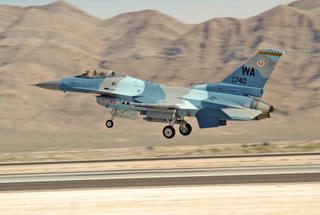The following is from www.strategypage.com
LEADERSHIP: Getting the Sergeant Major into the Officers Club
August 1, 2005: The American military is having increasing problems working with the
military rank system. Currently, there are 24 military ranks (pay grades) in the
U.S. armed forces (nine enlisted, from E-1 recruit to E-9 Sergeant Major, five
grades of warrant officer, then ten grades for commissioned officer, from 2nd
Lieutenant to four star general). There are some slight differences between the
services (especially in exactly what each rank is called.)
The problem is that this rank system was developed over two centuries ago, and was
based on a caste system that no longer exists. Way back in the day, the enlisted
troops were generally lower class, illiterate and often not the best specimens the
"lower classes," then representing some 90 percent of the population, had to offer.
The warrant ranks really didn't exist back then. The commissioned officers were
"gentlemen," recruited from the few percent of the population that had money and
property and could afford to educate their children. Over the last few decades,
this system has become more dysfunctional, as educational levels for enlisted
personnel continue to climb. More trouble arose as the need increased for highly
trained, and hard to find, technical specialists to run, and maintain the
increasingly complex equipment the troops were using.
So far, the military has improvised. There's now a complex system of bonuses to
attract, and keep, essential technical people. Another popular ploy is to simply
hire, for even more money (but only as needed) qualified civilians for these jobs.
All of this is not unique to the military. Many civilian firms have key technical
people who are paid more than the executives ("commissioned officers") that
supervise them. But the military has another problem with its "executives." Civilian
firms will keep a qualified individual in a leadership position for a long time, if
the job is getting done. But half a century ago, the military got hooked on the,
then popular, civilian management idea of "up or out." This theory, since
discredited and much modified, held that your executives should qualify for
promotion, or be fired. "Up or out." The military adopted this practice for
everyone. In practice, it meant people with good technical skills would get booted
out of the service because they just wanted to keep doing what they were good at,
and not get promoted to do a leadership job they didn't want. To deal with this, the
military introduced the "warrant officer" rank. These were techies who were allowed
to keep doing what they were good at, without worrying about unwanted promotions to
higher rank, or transfer to jobs commanding units.
Actually, the warrant officer idea worked pretty well, if you used it aggressively
enough. But the American military is reluctant to do what other countries have done,
and basically replace the higher NCO ranks with warrant officers. But there are many
advantages. Since the warrant officers hang out with the commissioned officers (at
the officers clubs and such), it's easier to communicate informally, and get things
done. But currently, senior NCOs (especially the top three enlisted ranks, many of
whom have college degrees) contain people who have far more in common with officers
their own age, than those officers do with the junior officers who also hang out at
the officers club.
There is a lot of rumbling, and grumbling, in the ranks about a need for some
fundamental change in the American military personnel system. The evolutionary
changes have not kept up with demand, and a revolutionary change is needed. Perhaps
another raid on civilian personnel practices is in order.
When I read, "Since the warrant officers hang out with the commissioned officers (at
the officers clubs and such" I almost needed to clean my computer. Oh yeah, all the Warrant Officers I know live to hang out at the "O-Club" with the RLOs.
While what they describe could solve some of the ills of the Army personnel system, it would send most Sergeant's Major off the deep end.
For some reason, I have found that a great number of Sergeant's Major I've have had professional dealings with have issues with Warrant Officers. I don't know if it is because we are that renegade entity in their midst that they can't control or that they are just jealous...but they always seem to get that constipated look on their faces whenever they see the bar with the dots.
As a result, being the kind of people we are there are Warrant Officers who live to push the Sergeant Major's buttons.
For instance a friend of mine while at the National Training Center had this happen...
The unit had just arrived at NTC to support the division staff with it's air support needs. As a result of their mission they weren't going into the maneuver box and weren't part of the war game. The company was told since they were admin players that they could wear soft cap instead of Kevlar while at the fabulous California resort community. Someone didn't tell this Sergeant Major.
CW2 M and CW2 E were walking down the street headed for the shopette to buy some liquid refreshment. About halfway to the store a car pulled alongside the pair and pulled to a quick stop. The door of the car opened and a voice sounded, "HEY!" Turning to look CW2 D spies a Sergeant Major getting out of the car and responds with, "WHAT!" and it goes downward from there. At the end of the day the story came down that some "big" Warrant Officer (CW2 M is 6 feet 180 lbs)was being a smart ass to the CSM. Never mind that the Sergeant Major addressed an officer with "HEY!" and never stood at attention the whole time he was "talking" with CW2 M (an Officer). I've had friends who were shoved by a Sergeant Major. Let's just say that Warrants and Sergeants Major=Oil and Water. Arguing with a Warrant Officer is like wrestling with a pig, you both get dirty and the pig likes it.
If what Strategy Page advocates actually came to pass I fear for the mental health of Sergeants Major everywhere.
Labels: Army Humor











